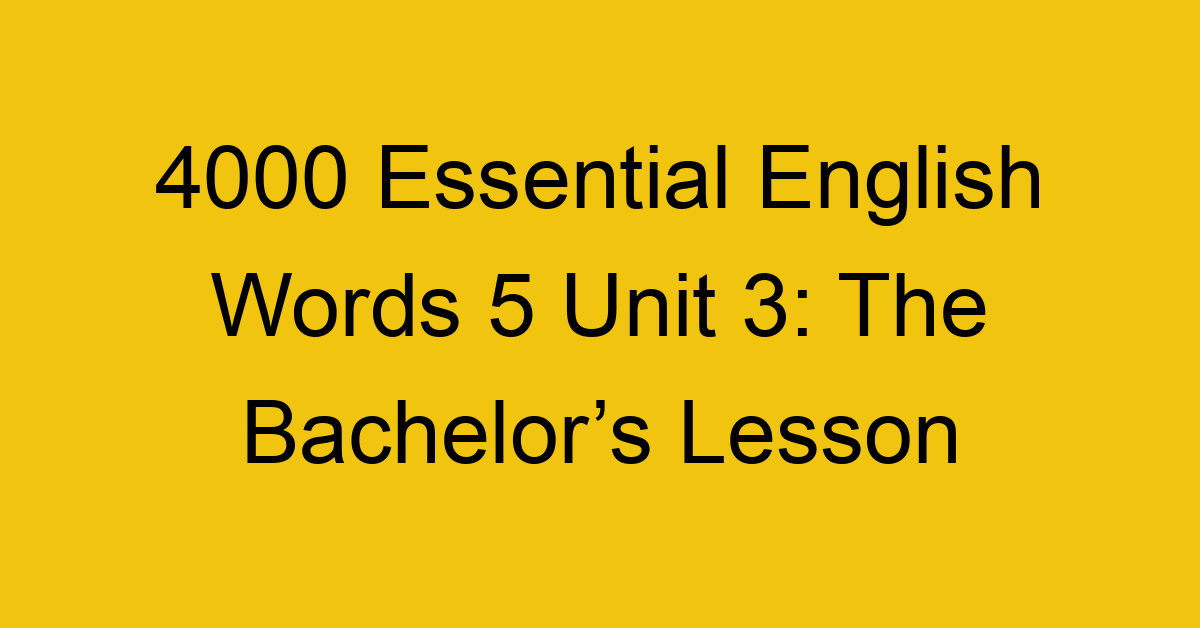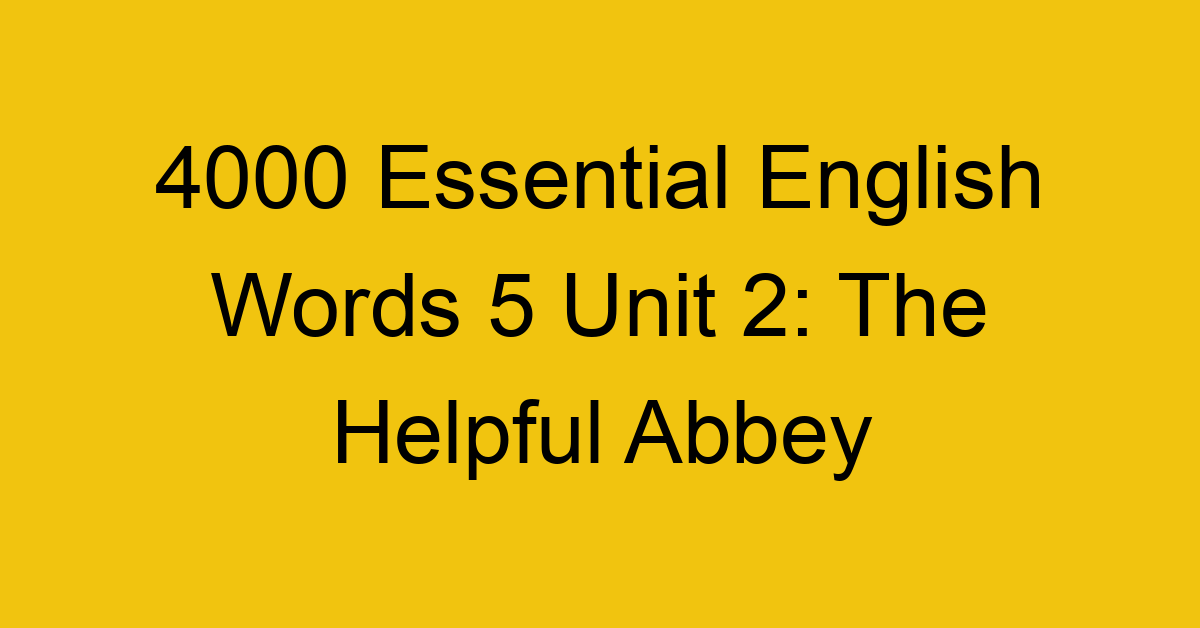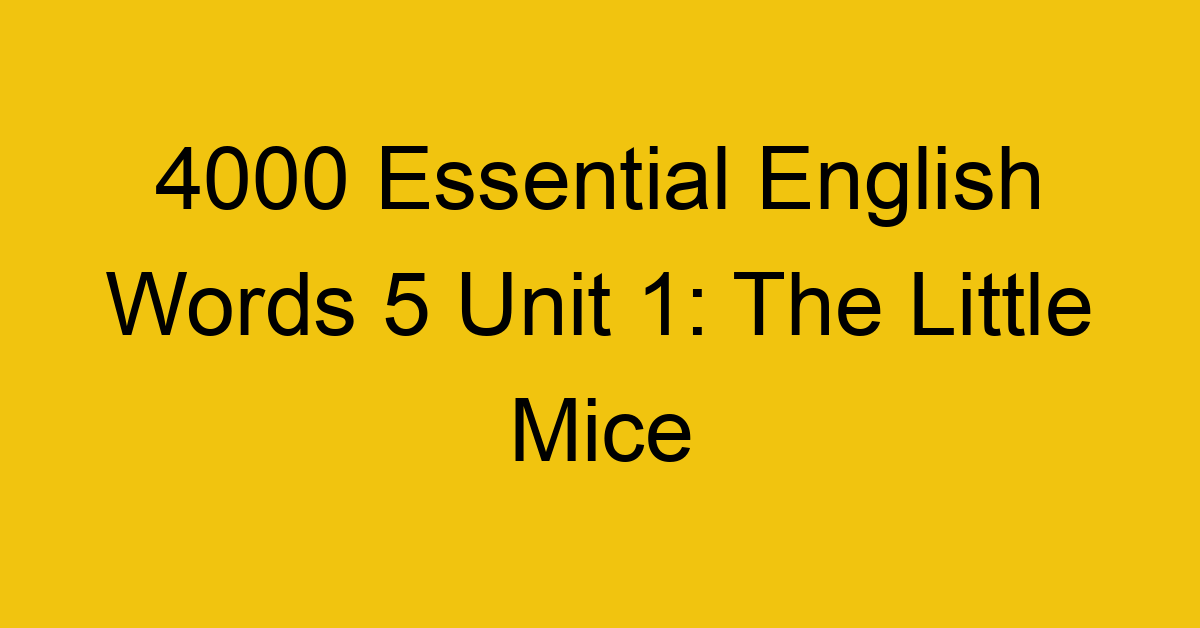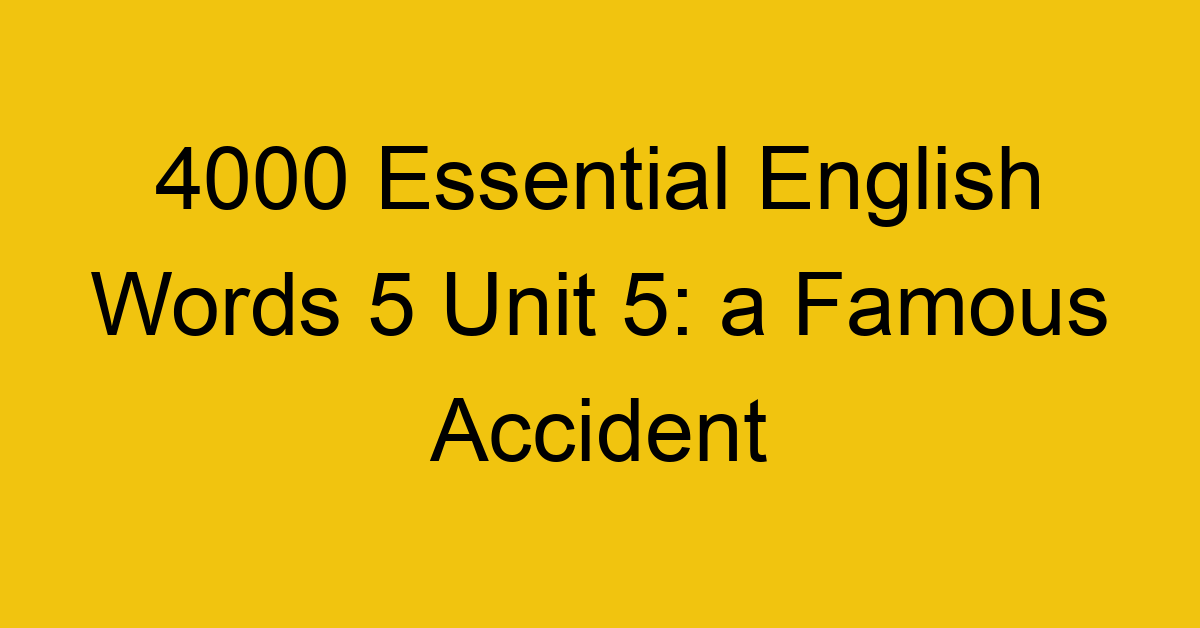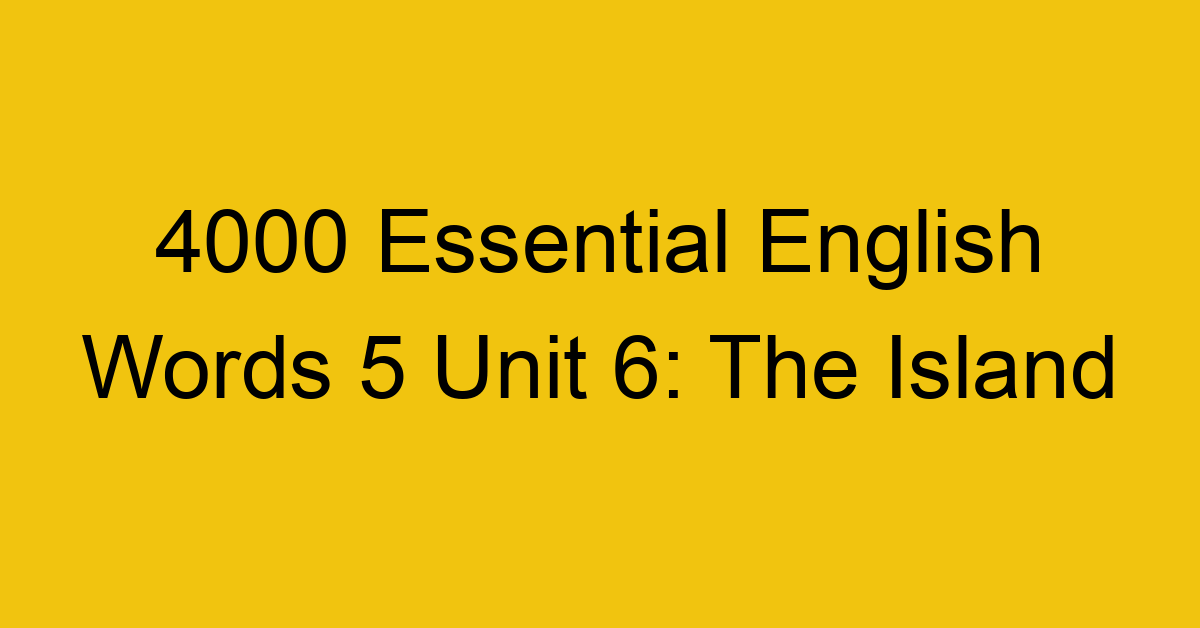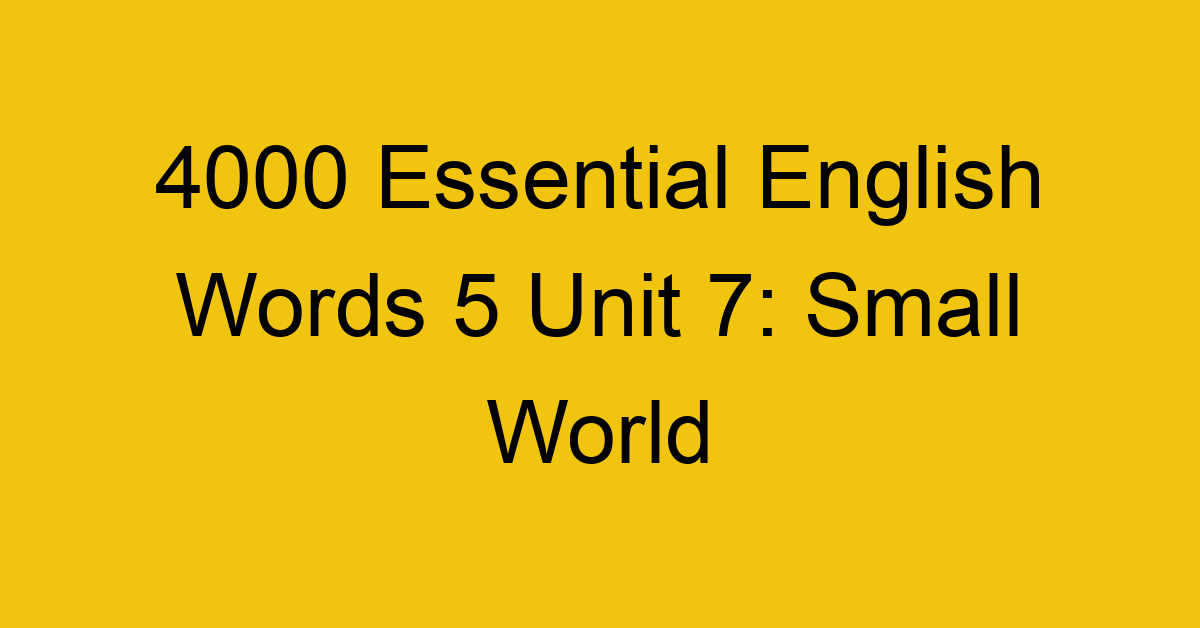4000 Essential English Words 5 Unit 4: The Corrupt Administrator
Word List
- administrator [ædˈminəstreitər] n.
An administrator is a person who controls a business, company, or organization.
→ Everyone in the store did whatever the administrator asked them to do.
- affluent [ˈæflu(:)ənt] adj.
If someone is affluent, they are wealthy.
→ People in the city are usually more affluent than people in the country.
- audit [ˈɔːdit] v.
To audit means to inspect financial records from a person or business.
→ The government usually audits companies that report lower than usual incomes.
- automate [ˈɔːtəmeit] v.
To automate a company means to install machines or computers to do the work.
→ When the bank automated, it started installing ATM machines.
- bribe [braib] v.
To bribe someone means to illegally persuade them for a favor with money.
→ The judge was bribed so that she would set the suspect free.
- corrupt [kəˈrʌpt] adj.
If someone is corrupt, they break the law for money or fame.
→ The corrupt policemen didn’t arrest the man because he gave them money.
- dispose [diˈspouz] v.
To dispose of something means to get rid of it.
→ He disposed of the can by throwing it into the recycle bin.
- headquarters [ˈhedˈkwɔːrtərz] n.
A headquarters is a building where the bosses of a company work.
→ He drove the long route to headquarters because it was a nice day.
- incentive [inˈsentiv] n.
An incentive is what makes a person want to do something.
→ The chance of winning a prize was incentive to get people to play the game.
- infrastructure [ˈinfrəˌstrʌtʃər] n.
An infrastructure is a collection of services needed to run a society or business.
→ Power lines are important parts of a city’s infrastructure.
- legislate [ˈledʒisleit] v.
To legislate means to make laws.
→ Senators have to legislate fairly, so most people will enjoy the benefits.
- legitimate [liˈdʒitəmit] adj.
If something is legitimate, then it is acceptable according to the law.
→ She found a legitimate plan to raise extra funds for her vacation.
- manipulate [məˈnipjəleit] v.
To manipulate something means to skillfully or unfairly control or affect it.
→ The Dr. manipulated the data to make it look like the cure was working.
- merchandise [ˈməːrtʃəndaiz] n.
Merchandise is goods ready to be purchased or sold.
→ The store added more merchandise because there were more shoppers.
- retail [ˈriːteil] n.
Retail is the activity of selling goods to the public, often for personal use.
→ Though cheap to make, once a t-shirt reaches retail, it costs ten times as much.
- revenue [ˈrevənjuː] n.
Revenue is the income made by a company.
→ The new products really increased the business’s monthly revenue.
- rubbish [ˈrʌbiʃ] n.
Rubbish is trash or waste.
→ The floor around the garbage can was covered with all kinds of rubbish.
- subsidy [ˈsʌbsidi] n.
A subsidy is money given by the government to companies to assist them.
→ The official gave the company a subsidy, so it could open two new factories.
- transaction [trænˈsækʃən] n.
A transaction is an act of buying or selling something.
→ Because the clerk was new at the job, the simple transaction took a long time.
- violate [ˈvaiəleit] v.
To violate a law, rule, or agreement means to break it.
→ I was given a ticket because the policeman said I violated the speed limit.

